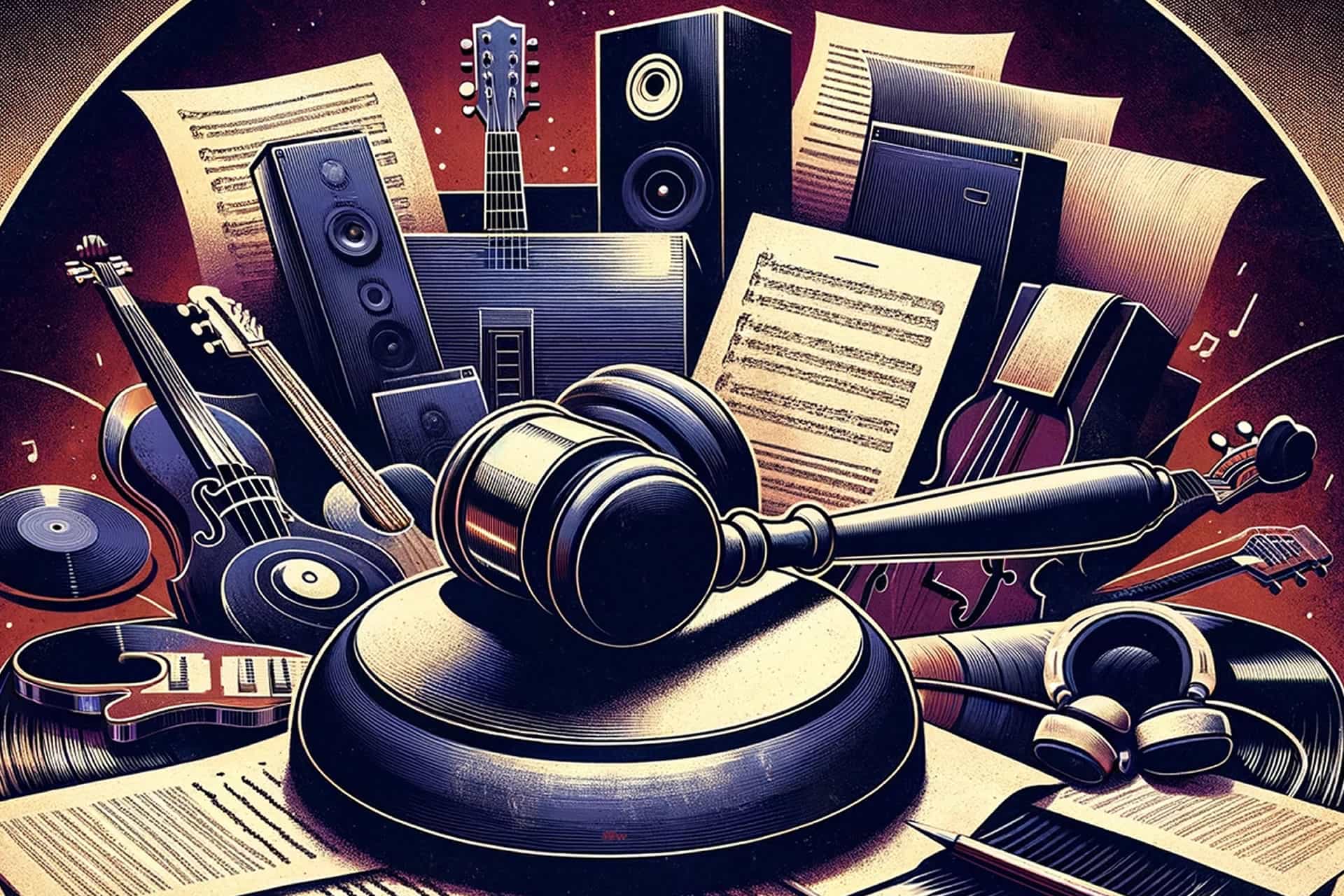As a musician in today’s rapidly evolving music industry, understanding the fundamentals of copyright law is essential. This knowledge not only empowers you to protect your creative work but also ensures that you can navigate the legal aspects of the music business effectively. This comprehensive guide breaks down the basics of copyright law for musicians, helping you to understand your rights and how to safeguard your work.
Table of Contents
What is Copyright?
Copyright is a form of intellectual property law that protects original works of authorship, including music, lyrics, and sound recordings. As soon as you create a song and fix it in a tangible medium (like recording it), it is automatically protected by copyright law.
Key Elements of Copyright:
- Protection: Copyright protects original musical works from unauthorized use.
- Ownership: As the creator, you own the copyright of your music the moment it is created and fixed.
- Duration: Copyright lasts for the lifetime of the author plus 70 years in most countries, ensuring long-term protection.
Rights Granted by Copyright
Copyright grants you exclusive rights to:
- Reproduce the work: Make copies of your songs.
- Distribute copies: Sell or distribute your music online or in physical form.
- Perform the work publicly: Perform your music live or broadcast it.
- Create derivative works: Create new works based on the original.
- Display the work publicly: For lyrics, album covers, etc.
Registering Your Copyright
While copyright exists from the moment of creation, registering your work with the copyright office provides legal benefits.
Benefits of Registration:
- Legal Evidence: Serves as official proof of your copyright ownership.
- Litigation: Allows you to sue for infringement and potentially recover statutory damages and attorney fees.
How to Register:
- File a Registration: Submit an application to the copyright office, along with a copy of your work and the required fee.
- Online Registration: Utilize online portals for a more straightforward and quicker registration process.
Understanding Copyright Infringement
Copyright infringement occurs when someone uses your copyrighted work without permission. This can include unauthorized reproductions, distributions, or performances of your music.
Dealing with Infringement:
- Cease and Desist: A formal request to stop the infringing activity.
- Legal Action: If infringement persists, legal action may be necessary, potentially leading to damages and injunctions.
Fair Use in Copyright Law
Fair use is a critical concept that allows limited use of copyrighted material without permission under certain circumstances, such as for commentary, criticism, education, or parody.
Determining Fair Use:
- Purpose and Character: Nonprofit, educational, or transformative uses favor fair use.
- Nature of the Copyrighted Work: Using published, factual works is more likely to be fair use.
- Amount and Substantiality: Using small, non-central parts of a work favors fair use.
- Effect on the Market: If the use doesn’t affect the market for the original work, it’s more likely to be considered fair use.
Licensing and Permission
As a copyright owner, you have the right to license your work. This means granting permission for others to use your music under specific terms.
Types of Licenses:
- Mechanical License: For reproducing a song in CDs, records, or digital downloads.
- Synchronization License: For using music in film, TV shows, commercials, or video games.
- Performance License: Required for broadcasting or playing music publicly.
Granting Permission:
- Direct Licensing: You can directly license your work to others.
- Working with PROs: Performance Rights Organizations can license on your behalf for public performances.
The Role of Digital Rights in Music
In the digital era, understanding how copyright law applies to online platforms and streaming services is vital.
Digital Copyright Management:
- Digital Service Providers (DSPs): Platforms like Spotify, Apple Music, and YouTube have licensing agreements to use your music.
- Content ID Systems: Platforms use these to identify and manage copyrighted content.
The Music Modernization Act (MMA)
The MMA, passed in 2018, brought significant changes to copyright law, impacting how musicians get paid in the digital age.
Key Provisions:
- Improved Royalty Rates: Better compensation for songwriters and artists from streaming services.
- Mechanical Licensing Collective (MLC): A new entity to collect and distribute mechanical royalties for digital music providers.
Collaborations and Copyright Law
When collaborating with other artists, it’s essential to define copyright ownership clearly.
Best Practices:
- Written Agreements: Clearly outline each party’s contributions and rights.
- Split Sheets: Document the percentage of ownership each contributor has in the song.
International Copyright Considerations
Copyright protection is not only national but also global, thanks to various international treaties and agreements.
Protecting Your Work Internationally:
- Berne Convention: Ensures your work is protected in all member countries.
- World Intellectual Property Organization (WIPO): Facilitates international protection of intellectual property.
Tips for Protecting Your Music
- Stay Informed: Keep abreast of changes in copyright law.
- Document Everything: Keep records of when each song was created and registered.
- Be Proactive: Regularly monitor where and how your music is being used.
Conclusion
Understanding the basics of copyright law is essential for every musician looking to protect their creative work and navigate the complexities of the music industry. By knowing your rights and how to enforce them, you can ensure that your music continues to be a source of artistic and financial reward. In the ever-changing landscape of music, staying informed and vigilant is key to safeguarding your musical legacy.








